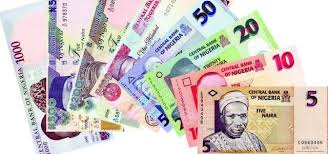Before the official foreign exchange (forex) window was closed by the Central Bank of Nigeria (CBN) on Wednesday February 18, currency speculators had counted their gains in tens of millions of naira in their victory over a regulator engaged in a running battle to save the soul of the naira from crooked businessmen.
Analysts have praised the action of the CBN, saying it will curtail the excesses and rescue the naira from a free fall caused in party by speculators.
Razia Khan, London-based Head of African Research at Standard Chartered, said the decision is positive news that should help expand transparency in the Nigerian market.
However, he stressed that with oil prices at levels where foreign reserves will be difficult to replenish, the CBN’s appetite for continued support of interbank forex rate will be closely monitored.
Aminu Gwadabe, Managing Director of Sabil BDC, said the action of the CBN would help stabilise the exchange rate in the market in as much as the CBN will continue to intervene in the interbank forex market.
He added that it will discourage commercial banks from speculation and round-tripping.
According to analysts at FBN Capital, the step is necessary if only to ensure that the naira stabilises and reflects demand and supply dynamics.
The CBN issued a statement on February 18 which said that weekly forex auctions, a key part of managing the naira, drains foreign reserves without benefiting the economy.
Before now, CBN Governor, Godwin Emefiele, had insisted that it would continue to defend the naira even if the foreign reserves dropped to $10 billion. The CBN had maintained its regular dollar sales to support the local currency.
But after the gap between interbank market and auction rates widened to a record level, Emefiele realised that the naira has been on the tailspin of currency speculation.
The CBN sold dollar to banks at N198, effectively devaluing the currency twice in three months.
Khan said in an e-mailed note that “this is an effective devaluation of the official Nigerian naira exchange rate. This is positive news, and should create more transparency in the Nigerian market.”
“With reserves declining every day and seen to affect the nation’s ratings, the Central Bank took the right decision,” added Sewa Wusu, head of research at Sterling Capital Markets.
The move amounts to “a tactical devaluation of the local unit, without having to make the announcement,” he said.
Until the CBN took action on February 18, currency speculators had capitalised on the spread (differential) between the CBN official rate of N168 to the dollar and the interbank rate of about N200 to make huge profits.
Bank or bureau de change (BDC) speculators make a profit of over N30 on every dollar sold at the interbank market. The profit margin widens to about N40 at the BDC market.
On Tuesday, February 17, the naira closed at N198.40 and speculators could have made about N30.40 per dollar at the interbank rate. At the BDC, where the naira exchanged at N214.50 to the dollar, the profit could be N40 per dollar.
A week earlier, on February 10, the exchange rate at the interbank market, which hit N205 to the dollar, jolted the CBN to ban banks from reselling dollars bought at auction to other banks. This is to curb speculation.
Matthew Eze, a foreign exchange (forex) dealer at the International Trade Fair, Lagos, confirmed that much as currency trading is attractive, the biggest challenge is how to get the dollar.
He said dollar scarcity in the face of rising demand has pushed profit to its highest level. “Customers are ready to buy at any rate if only they could find the dollar to buy. That is why the dollar has continued to strengthen against the naira,” he explained.
By Eze’s calculation, a dealer who gets $1,000 from the official window can make a profit of N38,000 with little or no effort. If it is sold at a BDC, where the naira exchanged for about N214.5 to the dollar last week, the profit will be higher
Afrinvest, an investment banking and research company, said in an email: “The N38.0 spread between the official and interbank rate presents incentives for arbitrage and round tripping while speculators following a herd pattern may prefer to hold the USD to preserve value.
“There is a strong possibility of the CBN taking a drastic action (perhaps convey an emergency MPC meeting) in addressing the disparity in the different forex markets so as to save the foreign reserves currently at US$33.5 billion.”
CBN spokesman, Ibrahim Muazu, affirmed after the recent Bankers’ Committee meeting in Lagos that the CBN will continue its special intervention by selling dollars on a “need basis” to satisfy demand at the interbank market and curb speculation, which he blamed partly for the naira’s crash.
“Our target is to stabilise the market in the interest of investors and the economy. We will do everything to ensure that we meet demand,” he pledged.
Muazu ruled out further devaluation of the naira after the 8 per cent slash in November 2014 to preserve forex reserves, but stressed that the CBN is monitoring dollar demand closely.
The CBN banned lenders from selling dollars sourced from it to BDCs, and warned that such measures will continue as the need arises.
Analysts see it as a good fight to halt speculation and save the naira.











